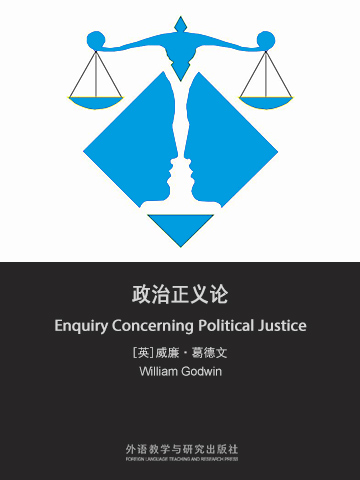政府,是个强制的问题而不是个同意的问题。(威廉•戈德温)
Political Justice was revered by the first generation of Romantic poets, such as William Wordsworth and Samuel Taylor Coleridge, although they would later turn away from radicalism. However, as Romantic scholar Andrew McCann explains, "it is in the radicalism of Percy Shelley's work that Godwin's thinking exerted its greatest influence on the Romantic movement, and ... Shelley's work was most central to the resurgence of radical sentiment after the end of the Napoleonic Wars."
In 1798, the Reverend Thomas Malthus published An Essay on the Principle of Population, which was largely written as a refutation of the ideas of Godwin and the Marquis de Condorcet. Malthus argued that since population increases geometrically (i.e. doubling in size each generation), while production can only increase in a linear manner, then disease, famine, poverty and vice are inevitable. Consequently, Malthus criticised Political Justice for expounding unachieveable utopianism.
十八世纪的英国政治哲学家和著名作家威廉·葛德文的政治哲学著作《政治正义论》(全名为《论政治正义及其对道德和幸福的影响》),是葛德文的一部最光辉、最精辟的政论。它不仅对当时的英国激进思想产生过巨大的影响,而且在西方政治思想史上,也占有一定的地位。它在德、法、美等国也有一定影响。在美国,葛德文在本书中提出的主张,一度成了杰弗逊派和联邦党人派争论的内容。所以在西方政治思想史当中,这是一部重要著作。葛德文在西方思想界也就成了一个著名人物了。
Godwin began thinking about Political Justice in 1791, after the publication of Thomas Paine's Rights of Man in response to Edmund Burke's Reflections on the Revolution in France (1790). However, unlike most of the works that Burke's work spawned in the ensuing Revolution Controversy, Godwin's did not address the specific political events of the day; it addressed the underlying philosophical principles. Its length and expense (it cost over £1) made it inaccessible to the popular audience of the Rights of Man and probably protected Godwin from the persecution that other writers such as Paine experienced. Nevertheless, Godwin became a revered figure among radicals and was seen as an intellectual leader among their groups. One way in which this happened is through the many unauthorized copies of the text, the extracts printed by radical journals, and the lectures John Thelwall gave based on its ideas.
- BOOK I: OF THE POWERS OF MAN CONSIDERED IN HIS SOCIAL CAPACITY
- BOOK II PRINCIPALS OF SOCIETY
- BOOK III PRINCIPLES OF GOVERNMENT
- BOOK IV OF THE OPERATION OF OPINION IN SOCIETIES AND INDIVIDUALS
- BOOK V OF LEGISLATIVE AND EXECUTIVE POWER
- BOOK VI OF OPINION CONSIDERED AS A SUBJECT OF POLITICAL INSTITUTION
- BOOK VII OF CRIMES AND PUNISHMENTS
- BOOK VIII OF PROPERTY
- BOOK II PRINCIPALS OF SOCIETY
- 书评 写书评
- 笔记
-
书评加载中...























 京公网安备 11010802032529号
京公网安备 11010802032529号
笔记加载中...